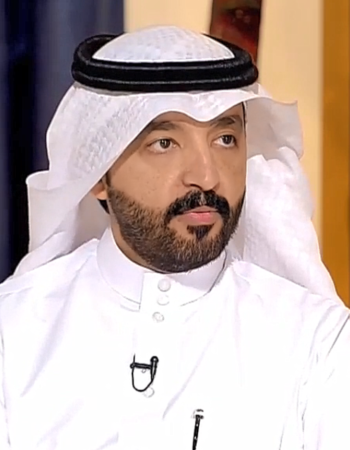طنف ٤٦٢ - PSY 462
CLINICAL PSYCHIATRY COURSE 462
Course: 462 Psych (Clinical Psychiatry)
Credits: 4 (2 + 2)
Academic Year: Fourth Year
Duration: 5 weeks
INTRODUCTION
We welcome you to course 462 Psych (the clinical psychiatry course) and we hope it will be an enjoyable and stimulating educational experience. This course aims at studying psychiatry as one of the most rapidly growing specialties of medicine in our country and the world. Thus, you will learn basic psychiatric knowledge and clinical skills that will enable you to function at the level of primary care and emergency psychiatry and take safe decisions when assessing and treating psychiatric patients. This will be accomplished through a variety of educational activities.
We expect full commitment and punctuality in the course activities and high respect towards people with psychiatric problems.
This manual is written in details for the tutors and students to strictly adhere and comply with to maintain the excellence of the teaching process.
OBJECTIVES
To provide the undergraduate medical students with 1-knowledge 2-attitude 3- clinical skills relevant to clinical psychiatry and essential for their future career as non-psychiatric clinicians in whatever specialty they choose.
1- Knowledge:
To acquire basic essential facts in clinical psychiatry that includes:
a. Phenomenological psychopathology (signs and symptoms) of psychiatric disorders.
b. Classification and etiology in clinical psychiatry (bio-psycho-social).
c. Common psychiatric disorders:
• Clinical features and course.
• Epidemiology and etiology.
• Differential diagnosis.
• Treatment (bio-psycho-social) and prognosis.
d. Treatment modalities in psychiatry:
• Physical: pharmacotherapy, electroconvulsive therapy (ECT) and others.
• Psychological: behavioral, cognitive, supportive psychotherapy and others.
2- Attitude:
To develop the scientific attitude towards:
a. Psychiatric patients and their families
b. Psychiatric interventions (bio-psycho-social)
c. Mental health and providers (psychiatrists, psychologists, social workers and others)
d. Psychiatry as a branch of medicine.
3- Clinical Skills:
a. To conduct a full psychiatric interview with:
• Proper interview techniques and skills.
• Sufficient psychiatric history.
• Standard “mental state examination”.
b. To present a diagnostic formulation for common psychiatric disorders based on the most recent classificatory systems in psychiatry.
c. To set an outline of a management plan for common psychiatric disorders following the bio-psycho-social approach (both short and long term).
d. To assess and appropriately refer psychiatric patients in the primary care settings.
e. To assess and deal competently and safely with psychiatric emergencies.
f. To assess and dispose properly consultation-liaison cases.
COURSE OVERVIEW
The course lasts for 6 weeks (including consolidation and examination weeks) during which varieties of educational activities are conducted to fulfill the objectives of the course with great emphasis on the applied clinical psychiatry. These activities are namely:
1. Cognitive Disorders Theme
2. Psychotic Disorders Theme
3. Mood Disorders Theme
4. Anxiety Disorders Theme
5. Child Psychiatry Theme
6. Clinical Activities (in-patient, outpatient, consultation-liaison, child psychiatry) include clinical cases log with a help of an assigned supervisor.
COURSE TEXTBOOKS
1. Basic Psychiatry – Professor M. A. Al-Sughayir, King Saud University Academic Publishing & Press
2. First Aid for the Psychiatry Clerkship, Third Edition, Latha Stead , Matthew Kaufman , Jason Yanofski
3. Others:
• Textbook of Psychiatry, by Linford Rees, Oxford University Press.
• Pocket Handbook of Clinical Psychiatry by Kaplan & Sadock, Williams & Wilkins.
• Emergency Psychiatry by Allen, Micheal. American Psychiatric Press.
• Clinical Manual to Psychosomatic Medicine: A guide to Consultation-liaison Psychiatry (Concise Guide), By Michael Wise & James Rundle, American Psychiatric Publishing.
• Trusted Psychiatry websites including , UpToDate , medscape psychiatry..etc
COURSE ASSESSMENT & EXAMINATION
1. Clinical activities assignments: 10 Marks
A. overall evaluation of student’s attitudes & skills by supervisors.
2. Modified Essay Questions (MEQ): 30 Marks
A. It is an MEQ exam of five clinical cases; four questions each, of twelve minutes each and held in the first day of the fifth week.
3. Final Examination: 60 Marks
A. An MCQ exam will be held at examinations week (for 2 rotations together), 60 MCQs (30 marks).
B. An OSCE exam will be conducted at examinations week (for 2 rotations together), 5 OSCE stations (30 marks).
The pass mark is 60 out of 100.
4. There will be two session held one at the start of the course to discuss the objectives & all logistics related to the course and one more session after the MCQ exam to get feedback from the students regarding the course.
Example of Exam:
- A 20 year-old girl hears voices coming from outside her head talking about her saying: “she is bad". What is the most likely correct statement:
-
- She has pseudo-hallucinations.
- These are second-person hallucinations of schizophrenia.
- She has misperceptions of voices.
- She has third-person hallucinations of mania.
- Most likely she is suffering from schizophrenia.

